Over the last 25 years, dozens of US firms have opened London offices and siphoned off talent. They dominate corporate metrics and always top lists for associate pay. But in what way are these firms really the ‘best’? Revenue and profits show them to have premium brands, but is that the optimal way to evaluate the success of a law firm business?
Stuart Woollard is a founder of The Maturity Institute, which helps businesses improve through effective management systems and healthier cultures. ‘UK firms are asking more questions about how to integrate sustainability alongside financial performance,’ he says. ‘So far, our research has only found UK firms that are authentically purpose-driven, where responsible business teams are more embedded in strategic decision-making, rather than peripheral to core business activities. There is also more evidence of infrastructure to tackle issues such as wellbeing, suggesting higher levels of investment in people.’
Brand recognition is often driven by simplistic factors, he adds, ‘and may not reflect the underlying health of a business or its strategic positioning for the longer term’.
Of all the ways in which UK firms outperform US competitors, I have identified three core pillars. Entrepreneurialism and culture are two of these, but this first article considers the foundations of any successful business: its infrastructure.
Almost all US firms follow a similar profits-driven model: higher-end value-add work undertaken with lower overheads, including for support services. Generally, they have smaller teams in areas such as talent, marketing and training. According to one anonymous US marketing source: ‘We’re the first to go if profits dip, and there’s a lack of training and investment in business service career development.’
But while this neglect boosts profits in the short term, it can create hidden costs. ‘We spend more in the longer-term on recruitment agency fees to replace people,’ she adds. ‘You end up losing institutional knowledge and the infrastructure that connects practice groups.’ In one instance, a New York partner referred work to a local German law firm because he was unaware his firm had a Frankfurt office: an extreme example of how insufficient internal communications resources hinder knowledge sharing.
US firms often talk about ‘culture’ and ‘nurturing people’, but they are much less likely to back up these claims with budgets and a willingness to invest in team building. Getting your employer to contribute to social activities seems to be easier in the UK.
A New York associate gave up trying to form a football team because his firm refused to fund pitch reservations. ‘This was frustrating,’ he says, ‘partners told us to learn about other groups in the firm, but we didn’t have the right environment to get to know people and develop connections.’ Woollard echoes the value of small wins: ‘You can draw a direct line between building trust and the resulting performance, through more collaboration, innovation and discretionary effort.’
Another area where US firms are lagging is appreciating the value of professional support lawyers or knowledge lawyers, who take the load off other fee-earners by managing research, training and business development tasks. These roles are alien to many US law firms. Where they do exist, they are often inspired by the UK precedent. Of Freshfields’ 40 knowledge lawyers, 33 are in Europe, with only two in the US.
Mayer Brown has more knowledge counsel in London than in the US, even though it has four times as many lawyers in the US than in London. Burges Salmon is a UK firm that has invested heavily in professional support: recent support staff initiatives include a comparative analysis exercise around GenAI-enhanced legal research tools to explore their potential, and the development of tailored training for key clients.
The firm also invests in legal project management. ‘Our recent collaboration with the University of Law supported 20 senior associates in developing their own key project management skills and embedding these practices into their daily work,’ says Carol Aldridge, Burges Salmon’s head of knowledge management.
She observes that many US firms have a different approach: ‘Our experience with US firms at conferences and on product advisory boards is that there can be differences, particularly in their approaches to professional support for knowledge management, which seem more devolved. This is echoed in the language of US tech suppliers who talk about “knowledge workers”, meaning all lawyers/attorneys, and about “knowledge materials”, meaning day-to-day work content, while we use these terms to mean professional support lawyers.’
Why are US firms reluctant to invest in support infrastructure? Aldridge points to the different remuneration models: ‘In the US, there may be less incentive to pool gold-standard knowledge materials.’ Despite so many recent mergers and the alleged homogeneity created by globalisation, the difference in cultures remains stark.
One anonymous source said: ‘There is often a difference between how London offices of US firms like to see themselves, and the reality of what many of their US colleagues really think of them. Non-US offices are often seen as a drain, bringing down overall profitability and creating management and conflict distractions.’ If there is no quick and direct link between spend and profits, US firms are less likely to invest in infrastructure.
One area where all major firms are investing is AI – either by developing tools or buying in expertise. ‘If AI is going to be the game-changer people say it will, the firms in pole position will be the ones with the appetite to invest in infrastructure to manage change across the whole firm,’ says a law firm tech adviser. ‘This can’t be managed well if you prioritise short-term profits.’
So could one impact of AI on the profession see the emergence of the UK as the global leader of AI-powered legal services? UK firms that support knowledge-sharing and reward teamwork are at an advantage in exploring the ups and downs of this experimental field. And they might even have retained enough comms professionals that the world gets to know about their successes.
Rick O’Neill is a lawyer with extensive experience of working at US firms based in London


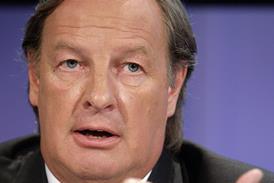




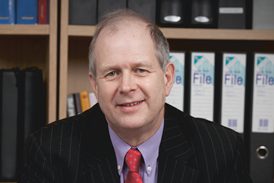
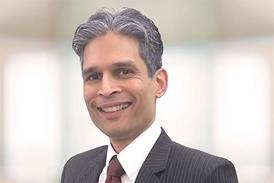
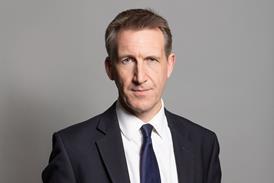







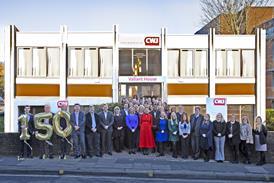













No comments yet